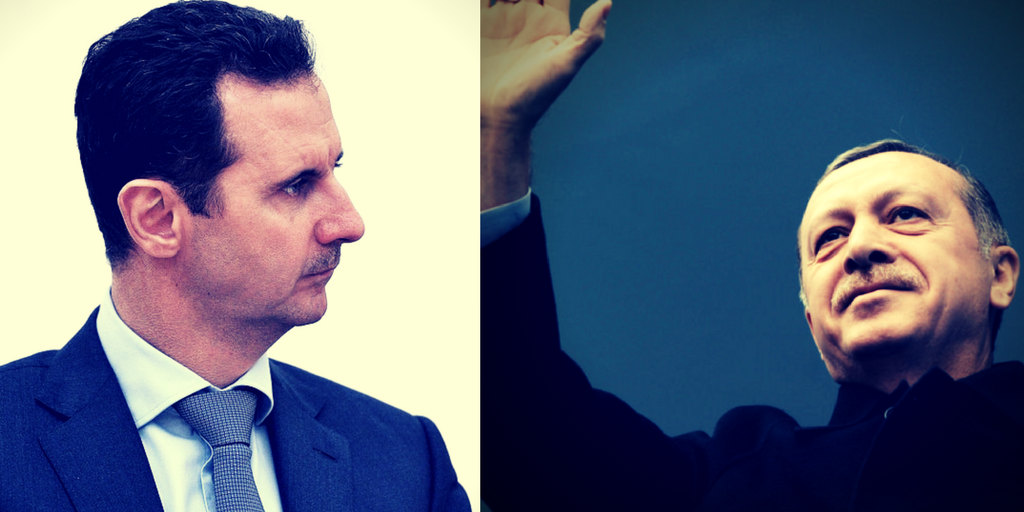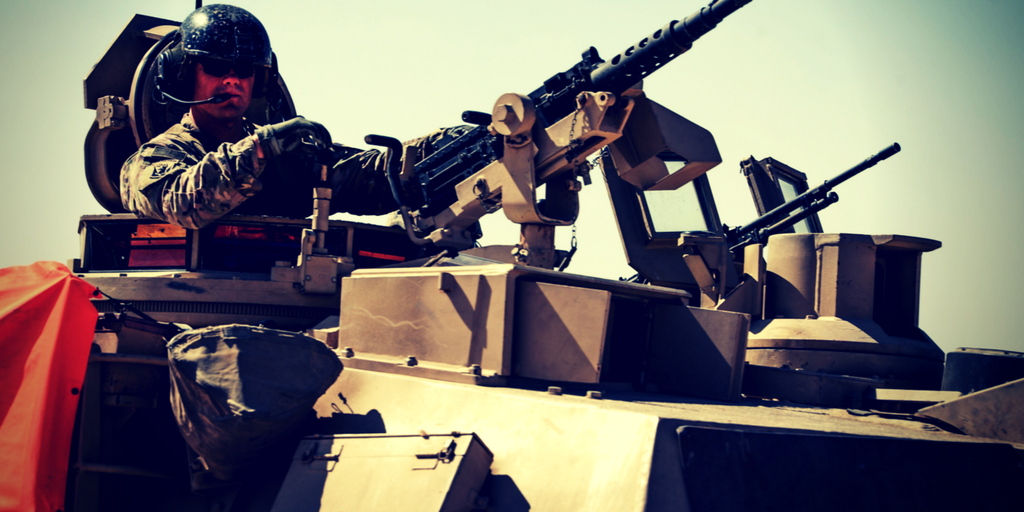The Radical-in-Chief didn’t just support one monster. He backed two.
Obama owns the disaster in Syria in a way that no one else does. Three of his policies intersected to cause the bloodshed, devastation and horrors there.
- The Iraq Withdrawal
- The Arab Spring
- The Iran Deal
Obama’s Iraq withdrawal turned the country over to Iran and ISIS. The tensions between the Shiite puppet regime in Baghdad (which Obama insisted on backing) and the Sunni population created a cycle of violence that reduced the country to a bloody civil war between Shiite militias and Al Qaeda in Iraq.
The collapse of the multicultural Iraqi army allowed Al Qaeda in Iraq to seize huge swathes of territory. And ISIS and Iran began carving up Iraq into their own ethnically cleansed dominions.
Then his Arab Spring empowered the Muslim Brotherhood’s Sunni forces to seize power in countries around the region. Unlike Egypt and Tunisia, whose governments fell under White House pressure, and Libya, which Obama bombed and invaded, the Iranians and Russians didn’t cut their Syrian allies loose.
Iraq’s civil war spread to Syria. Initially Obama backed the Sunni Brotherhood militias. These groups represented themselves as free, secular and democratic. They were actually nothing of the kind. But as Libya and Yemen turned into disasters, and the Syrian militias clamored for direct military intervention, Obama instead turned to Iran. The Sunni Islamists hadn’t worked out so he cut a deal with the Shiites.
Obama’s new deal with Iran was sealed with a fortune in illegal foreign currency shipments flown in on unmarked cargo planes, a virtual blank check for Iran’s nuclear program, the collapse of sanctions and the withdrawal of support for the Sunni militias in Syria. And that gave Iran a free hand in Syria.
If you want to understand why Syria is a disaster area, these are the three reasons.
Obama empowered ISIS and Iran next door to Syria. Then he empowered Muslim Brotherhood and Al Qaeda militias in Syria. And then he finally empowered Iran, Assad and Russia in Syria.
If he had set out to cause as much death and devastation as possible in Syria, he couldn’t have done any more damage without dropping nuclear bombs or his campaign propaganda on its major cities.
Every major terror player in Syria was empowered by Obama’s terrible decisions.
ISIS and Iranian expansionism grew in the vacuum his policies had created. He backed the Brotherhood and Al Qaeda militias with training, political support and weapons shipments. And then he decided to create another vacuum that would allow Iran to overrun the region to do the work he didn’t want to do.
Syria is just the culmination of a series of bad decisions guided by a single disastrous philosophy.
Obama’s foreign policy was a leftist response to 9/11 and the Iraq War. Its central premise was that Islamic terrorism was our fault. Islamic terrorists had attacked us because of our support for the governments in Egypt and Saudi Arabia. This idea was implicitly expressed in his Iraq War speech.
“Let’s fight to make sure our so-called allies in the Middle East, the Saudis and the Egyptians, stop oppressing their own people, and suppressing dissent, and tolerating corruption and inequality, and mismanaging their economies so that their youth grow up without education, without prospects, without hope, the ready recruits of terrorist cells,” he had declared.
The solution was withdrawing from Iraq. And withdrawing political support from our allies.
The Islamic terrorists would run for office, win elections and then stop being terrorists. Or at least they would limit their terrorism to domestic and regional violence. There would be no more justification for our “imperialist” military interventions in the region. That was Obama’s “smart power” foreign policy.
Instead it all went badly wrong.
The alliance between the Muslim Brotherhood, Qatar and the Obama regime toppled friendly governments and replaced them with terror states across the Middle East. But popular uprisings against Islamist rule in Tunisia and Egypt forced out Obama allies: Mohammed Morsi and Rashid Ghannouchi. Obama’s illegal invasion of Libya led to everything from the return of slave markets to ISIS cities. Libya’s Brotherhood allied with Al Qaeda influenced terror militias leading to the Benghazi attack.
Obama’s other worst Arab Spring disasters happened in Syria and Yemen. Iran used the Brotherhood bids for power as an opening. The fighting between Shiite and Sunni Jihadists devastated both countries. Obama wanted the Muslim Brotherhood to win, but he didn’t want to keep invading countries to do it.
When some of his advisers urged him to intervene more strongly in Syria, he wavered.
The Nobel Peace Prize winner, who vacationed all over the world, couldn’t actually find anyone except the French to actually support action in Syria. And he was too used to leading from behind to take the lead. The red line had been broken. He slowly crawled all the way up to action. And then ran away while pathetically blaming the British for his own cowardice, double-dealing and broken promises.
The former UK PM would reportedly describe Obama as, one of the “most narcissistic, self-absorbed people”.
Obama avoided the war by humiliating his own Secretary of State and colluding with the Russians. He dodged having to deliver on his red line by agreeing to pretend that Syria had destroyed its WMDs.
Triumphant press releases and media accounts claimed that all the chemical weapons were gone.
This fake deal would serve as a precedent for another fake deal to stop Iran’s own WMD program. Both deals were equally worthless and were backed by the experts and reporters who are now demanding action all over again against the Syrian WMDs that, if you listened to them, weren’t supposed to exist.
“The credible threat of force brought about an opening for diplomacy, to come in, which then led to something that no one thought was possible,” Derek Chollet, former Assistant Secretary of Defense for International Security Affairs, said.
There was no credible threat of force. And there was a reason no one thought that it was possible.
It wasn’t.
The Russians and Iranians had played Obama. And they would go on playing him. But Obama wanted to be played. He wanted to save face by handing over his disaster to the Russians and Iran.
He wanted to implement regime change in the Middle East. But he didn’t want to get his hands dirty.
It all began with his backing for Sunni Islamist takeovers. Then he switched to backing Shiite Islamists.
As Hillary once said, “What difference does it make?” Except to the dying and the dead.
We support monsters.
That is the familiar leftist critique of American foreign policy during the Cold War. The same radicals who supported the racist Sandinistas, who chanted, “Ho Ho Ho Chi Minh, the NLF is gonna win” at their anti-war rallies, and wore red Che t-shirts, claimed that we wrongly supported anti-Communist dictators.
But the left is always twice as guilty of its own accusations.
In Syria, Obama didn’t just support one monster. He backed two. The bloodshed in Syria is entirely a product of the decisions that he made. But he wasn’t satisfied with supporting just one bunch of genocidal Islamic fanatics in a holy war. In one of the most extraordinary crimes, he backed both.
And he closed his eyes and allowed a third, ISIS, to rise.
Obama wanted to overthrow the dictators who were our allies. And he turned to the Brotherhood to do the job. When the Brotherhood couldn’t stand up to Iran or ISIS, he turned to Iran. He violated the law numerous times, providing weapons to Sunni Jihadists and cash to Shiite Jihadists, launching one illegal war and threatening to launch another, and it all ended in a miserable disaster that he ran away from.
The blood of 500,000 people is on his hands.
Originally Published in FrontPageMag.







